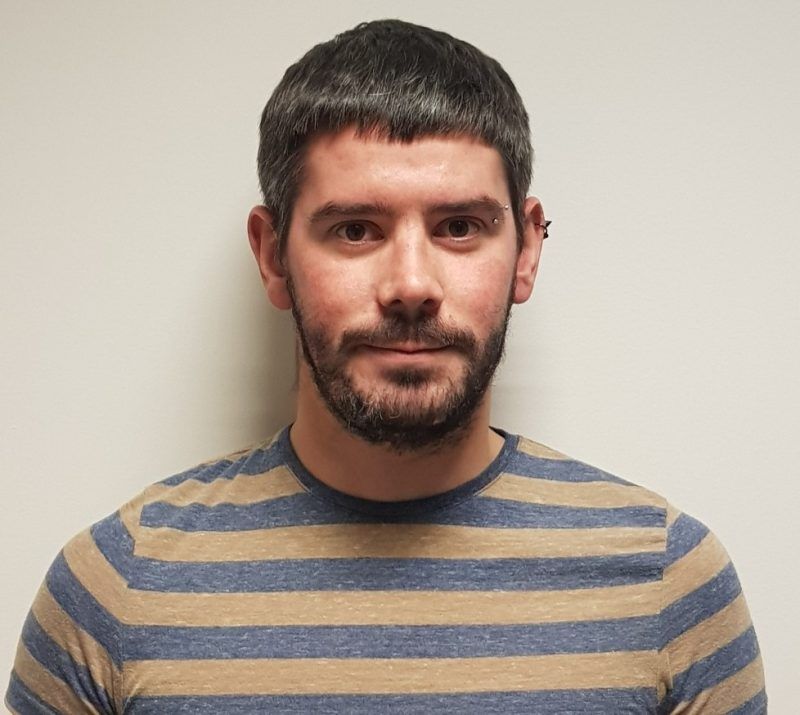World TB Day: in pursuit of effective new therapies for tuberculosis
Posted on: 24 March 2022
Trinity research is looking at how we can enhance our immune systems against the bacteria that causes TB, rather than on traditional medicines that target the bacteria itself. Dr Donal Cox takes a fresh look at already approved therapies to repurpose to fight this deadly disease.
Today is World Tuberculosis (TB) Day which aims to raise awareness of the devastating health, social and economic consequences of TB, and to step-up up efforts to end the global TB epidemic. TB remains one of the world’s most deadly infectious killers, with more than 4,100 people losing their lives worldwide each day.
Dr Donal Cox (pictured) is a post-doctoral researcher who works with Professor Joseph Keane – a thought leader in the future of TB treatment – as part of the Tuberculosis Immunology Research Group, Department of Clinical Medicine, Trinity Translational Medicine Institute (TTMI), based in St James’s Hospital.

The problem with current treatments for TB
Mycobacterium tuberculosis (Mtb) is the causative agent for TB. It is estimated that one third of the world’s population is infected with Mtb, moreover TB is one of the top ten causes of mortality worldwide. While the Bacillus Calmette-Guérin (BCG) vaccine has been in use for almost 100 years, it does not provide lifelong immunity, and we do not have a successful vaccine against lung disease.
There is still a lot that we don’t know about how our immunity works against Mtb. Furthermore, it is concerning that multiple new TB strains are emerging that are resistant to multiple antibiotic therapies. The team are interested in host-directed therapies which enhance our immune system, rather than traditional therapies (like antibiotics) which target the bacteria itself. One of the most efficient and cheapest options for scientists is to repurpose drugs therapies which are already approved (and therefore known to be generally safe).
How does repurposing traditional drugs for TB work?
Donal and the research team have demonstrated that already approved drugs such as Vorinostat and Desferrioxamine can augment and bolster the human immune response against Mtb. They are currently investigating how Dexamethasone (a steroid) may be used to help treat TB. Corticosteroids are currently the only approved adjunctive (additional) treatment against TB, where infection involves not only the lungs but also the brain.
Host directed therapies may be able to improve the metabolic function of patient’s immune cells. The team has identified that the metabolic function is altered in the immune cells of people who are susceptible to Mtb (like macrophages of those who smoke and, more recently, the immune cells of new-born babies). Additionally, they have found that lactate (which was once regarded as a waste product of metabolism) might actually play a role in killing Mtb. Finally, the team is currently investigating whether cytokine therapies might be able to fine tune the metabolic response of immune cells in the lung, therefore improving their ability to fight infection.
The importance of patient participation
This research relies on the participation of patients attending St. James’s Hospital, Dublin to donate cells. Patients undergoing bronchoscopy donate the wash fluid from the procedure, from which researchers can isolate the most important immune cell for TB research: the alveolar macrophage. Patients with TB also donate blood to studies allowing the team to examine the influence of Mtb on the immune system, as well as testing new therapies in the lab.
Future impact of this research in the fight against TB
Dr Cox hopes to identify new therapies which target the human immune response to help it combat Mtb after infection. By using primary human cells to identify novel functions for traditional drugs against Mtb, Donal and the team hope this will accelerate the development of new anti-TB therapies, giving greater chances of success in preclinical models and clinical trials.
More information
You can find out more about World TB Day HERE.
